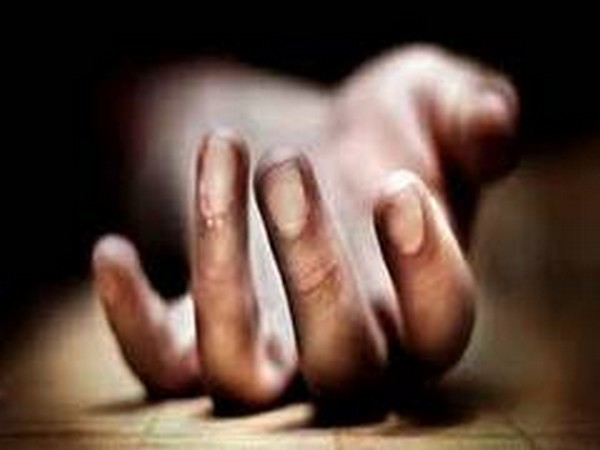Son of woman killed in security operation seeks attention for Jamaica's poorest suburbs

- Country:
- United States
(Corrects to clarify that awaiting confirmation of who shot Bogle) By Kate Chappell
KINGSTON, June 5 (Thomson Reuters Foundation) - The death of a mentally ill woman in Jamaica shot in her home during a military/police operation has reignited a debate about the treatment of residents in the nation's poorest inner-city communities as protests emerge globally over racial inequality. Susan Bogle, 44, was resting at her home in August Town, an eastern suburb of Kingston, on the afternoon of May 27 when security forces involved in police and military operation charged in and shots were fired.
The forces were reported to have been chasing a criminal. Four officers have been taken off active duty and an investigation is underway into who was responsible for the shooting. But more than 25,000 people have signed a petition calling for justice with protests scheduled for this weekend.
Bogle's son Omari Stephens said he wants to call attention to the injustices faced by Jamaicans living in the most deprived neighbourhoods of the tourist island which is the second poorest country in the Caribbean after Haiti. "There's a label, a stigma attached to August Town and other inner-city communities," Stephens, 26, told the Thomson Reuters Foundation.
"While we do appreciate the lawmen carrying out their job, they have to be careful because not everyone is a criminal. It's as if living here is the ultimate sin." Stephens, a government worker, said Prime Minister Andrew Holness has offered government assistance for funeral costs, to rebuild the home and for a monthly living stipend for a year.
In a televised press conference, Holness also addressed Jamaica's history of violence by security forces and promised justice will be served for Bogle's family. "(But) my intention is just to shed some light and bring some attention to injustice. This happens every single day in Jamaica," Stephens said.
VIOLENT HISTORY
Authorities were quick to assure people that action will be taken and avert any flareup of violence in a country that has one of the highest murder rates in the world as well as a long and bloody history of clashes between security forces and citizens.
One of the most notable conflicts was in 2010 when at least 73 citizens were killed and 35 wounded by security forces during an operation to extradite accused drug kingpin Christopher “Dudus” Coke in the Tivoli Gardens slum in Kingston According to a report from the Independent Commission of Investigations (INDECOM), 3,573 citizens were killed by security forces between 2000 and 2019.
Parliament created INDECOM in 2010, partly in response to the Tivoli assault and to monitor reports of abuse by security forces with the initiative appearing to have some success. In 2010 there was a high of 277 fatal shootings, but the number of deaths declined to a low of 86 last year.
Amnesty International said police shootings were generally attributed to a tough-on-crime approach, but often disproportionately target poor communities where victims have little recourse. Young men and teenagers from inner-city, disenfranchised neighbourhoods accounted for the vast majority of victims of unlawful killings by the police.
Rodje Malcolm, executive director of human rights and social justice organization Jamaicans For Justice, said the protests emerging globally following the death of an unarmed black man in police custody in Minneapolis were driving Jamaicans to action. "So many people are outraged because it reminds us of the countless cases of Jamaicans either killed or abused by security forces in communities across the island," he said.
"One place to start is by keeping the promise to implement mandatory body cameras across the security forces. Too many lives have been lost." Human rights activist Lloyd D'aguilar said mass protests were the only way to enact any real change in Jamaica where about 19% of the 2.9 million population live in poverty, according to the World Bank, and crime and violence remain high.
"Police and state extrajudicial killings are far more serious in Jamaica than the United States," he said. "The only difference is that we have yet to develop that kind of mass protest which is likely to be the only way that the state will treat this matter seriously."
Jezeel Martin, 27, a friend of Stephens, started the petition calling for justice after Bogle's death struck a personal chord. His brother was also murdered by a soldier. "There are so many people in inner-city communities who are victims of violent crime," Martin said.
Stephens described his mother as a "tiny, fragile" and "humble" woman who could never have posed a threat to officers. "What is the core for me and what is most important is that the (Jamaica Defence Force) member who carried out such a cruel act is charged and faces the full force of the justice system," he said.
(This story has not been edited by Devdiscourse staff and is auto-generated from a syndicated feed.)
ALSO READ
Competition policies and institutions key to growth strategy in Latin America and the Caribbean
Haiti decrees long-awaited transition council, but questions remain
Haiti issues long-delayed decree for political transition council
World News in Brief: Looming famine threat for Sudan, 3.3 million in need near Ukraine frontline, Haiti update, there’s a place for all in outer space
Haiti decrees long-awaited transition council, but questions remain










